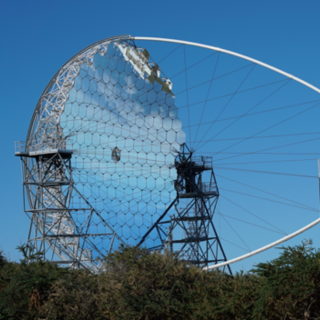Bibcode
MAGIC Collaboration; Acciari, V. A.; Ansoldi, S.; Antonelli, L. A.; Arbet Engels, A.; Arcaro, C.; Baack, D.; Babić, A.; Banerjee, B.; Bangale, P.; de Almeida, U. Barres; Barrio, J. A.; Becerra González, J.; Bednarek, W.; Bernardini, E.; Berti, A.; Besenrieder, J.; Bhattacharyya, W.; Bigongiari, C.; Biland, A.; Blanch, O.; Bonnoli, G.; Carosi, R.; Ceribella, G.; Chatterjee, A.; Colak, S. M.; Colin, P.; Colombo, E.; Contreras, J. L.; Cortina, J.; Covino, S.; Cumani, P.; D'Elia, V.; da Vela, P.; Dazzi, F.; de Angelis, A.; de Lotto, B.; Delfino, M.; Delgado, J.; di Pierro, F.; Domínguez, A.; Dominis Prester, D.; Dorner, D.; Doro, M.; Einecke, S.; Elsaesser, D.; Fallah Ramazani, V.; Fattorini, A.; Fernández-Barral, A.; Ferrara, G.; Fidalgo, D.; Foffano, L.; Fonseca, M. V.; Font, L.; Fruck, C.; Galindo, D.; Gallozzi, S.; García López, R. J.; Garczarczyk, M.; Gaug, M.; Giammaria, P.; Godinović, N.; Guberman, D.; Hadasch, D.; Hahn, A.; Hassan, T.; Herrera, J.; Hoang, J.; Hrupec, D.; Inoue, S.; Ishio, K.; Iwamura, Y.; Kubo, H.; Kushida, J.; Kuveždić, D.; Lamastra, A.; Lelas, D.; Leone, F.; Lindfors, E.; Lombardi, S.; Longo, F.; López, M.; López-Oramas, A.; Maggio, C.; Majumdar, P.; Makariev, M.; Maneva, G.; Manganaro, M.; Mannheim, K.; Maraschi, L.; Mariotti, M.; Martínez, M.; Masuda, S.; Mazin, D.; Minev, M.; Miranda, J. M.; Mirzoyan, R.; Molina, E.; Moralejo, A.; Moreno, V. et al.
Bibliographical reference
Monthly Notices of the Royal Astronomical Society, Volume 483, Issue 4, p.4578-4585
Advertised on:
3
2019
Citations
8
Refereed citations
8
Description
SNR G24.7+0.6 is a 9.5 kyrs radio and γ-ray supernova remnant
evolving in a dense medium. In the GeV regime, SNR G24.7+0.6 (3FHL
J1834.1-0706e/FGES J1834.1-0706) shows a hard spectral index (Γ
˜ 2) up to 200 GeV, which makes it a good candidate to be observed
with Cherenkov telescopes such as MAGIC. We observed the field of view
of SNR G24.7+0.6 with the MAGIC telescopes for a total of 31 h. We
detect very high-energy γ-ray emission from an extended source
located 0.34° away from the centre of the radio SNR. The new source,
named MAGIC J1835-069 is detected up to 5 TeV, and its spectrum is
well-represented by a power-law function with spectral index of 2.74
± 0.08. The complexity of the region makes the identification of
the origin of the very high-energy emission difficult; however, the
spectral agreement with the LAT source and overlapping position at less
than 1.5σ point to a common origin. We analysed 8 yr of Fermi-LAT
data to extend the spectrum of the source down to 60 MeV. Fermi-LAT and
MAGIC spectra overlap within errors and the global broad-band spectrum
is described by a power law with exponential cut-off at 1.9 ± 0.5
TeV. The detected γ-ray emission can be interpreted as the results
of proton-proton interaction between the supernova and the CO-rich
surrounding.
Related projects

Particle Astrophysics
The members of the Particle Astrophysics Group of the IAC participate actively in three large international collaborations of high-energy astrophysics: AMS-02 (Alpha Magnetic Spectrometer), the Cherenkov radiation telescopes MAGIC I and II and the Cherenkov Telescope Array Observatory ( CTAO). We also participate in the ASTRI mini-array, the gamma
Mónica Luisa
Vázquez Acosta